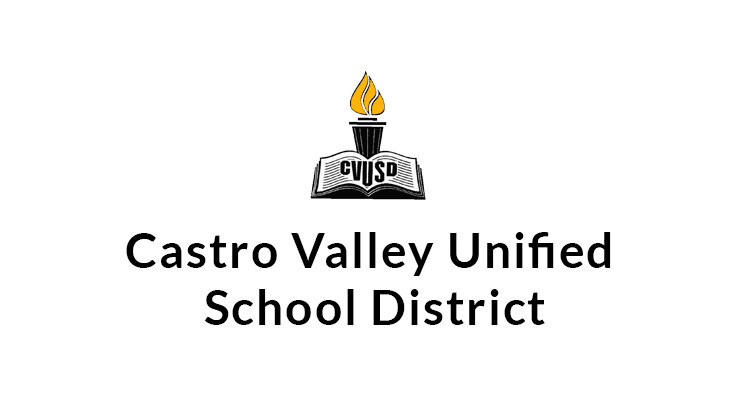
Castro Valley Unified School District approves agreement with Liberated Ethnic Studies Model Curriculum Consortium
Incidents
- Issues
- Ethnic Studies
On January 19, 2022, the Castro Valley Unified School District school board, in a 5-0 vote, approved an agreement with the Ethnic Studies consulting firm Liberated Ethnic Studies Model Curriculum Consortium. The proposal submitted to the district included professional development and other training sessions throughout the year. The proposed cost to the district would be $82,560, with a board estimated overall cost of $150,000.
The first teacher training was administered on March 4 by the consortium’s faculty, including a presentation on “Liberated Ethnic Studies framework and how it centers community-responsiveness, specifically the seven guiding principles and the Five S’s (self, stories, systems, solidarity, and social movements).”
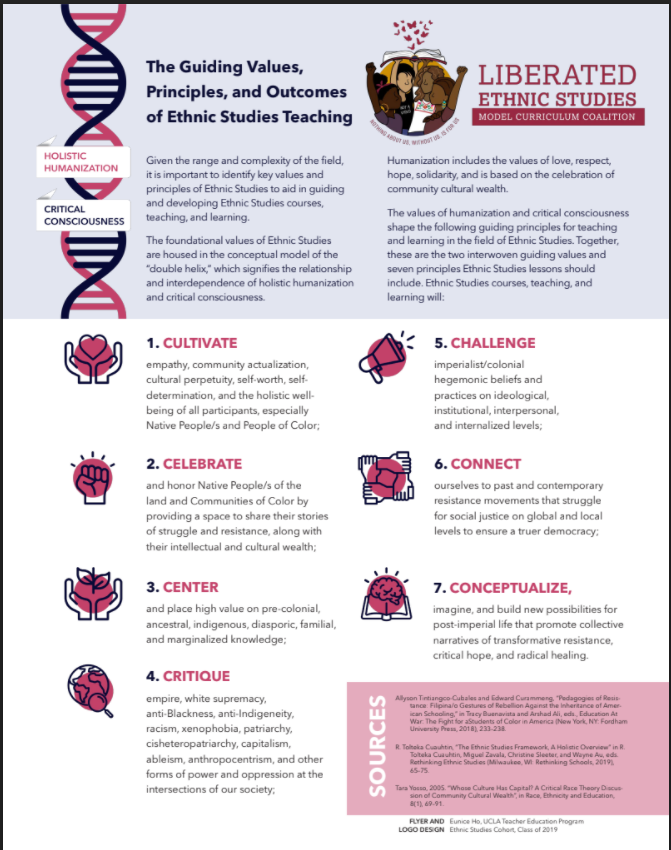
Other curriculum development sessions would “introduce teachers to elements of ethnic studies pedagogy” and assist teachers in mapping out units “utilizing the LESMC story ARC, template and lesson planning templates.” The consortium’s faculty would also “collaborate with teachers to begin to develop lesson plans, units for 6-9 week courses, and a 9th grade course.”
The proposed trainings included guiding teachers to “analyze their existing curriculum through the lens of a transformative curriculum that encourages students to become actively engaged in producing knowledge for liberation of communities of color.”
The consortium would also be facilitating a training for district educators titled “White Teachers and White Students in Ethnic Studies” over the summer. This session would “address how white teachers can engage in ethnic studies work and teaching through an understanding and reflection on their privilege, power, and positionality,” as well as “address white supremacy culture, decentering whiteness and an action plan for professional/personal growth.”
An internal email from Assistant Superintendent Jason Reimann to “teacher leaders” stated that “Ethnic Studies is a course that is centered on the history experiences and voices [sic] from our community. A pre-packaged curriculum would not be sufficient to ensure that these communities are a part of our course.” He also writes, “It is unfortunate that the prospect of including the Palestinian American experience has been mischaracterized by a few as anti-semetic. Nothing could be further from the truth. As a district, we have demonstrated unwavering commitment to fighting all forms of discrimination, including anti-semitism.”
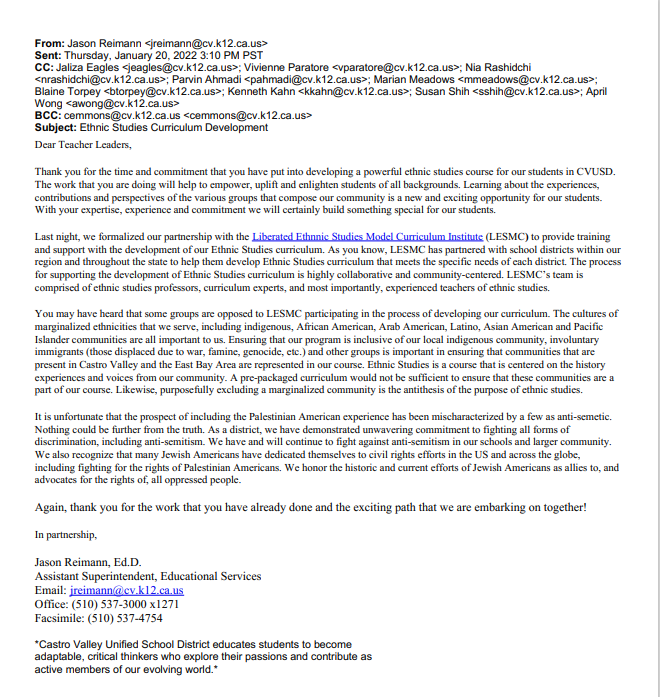
In a separate email response to a local reporter, school board President Dot Theodore stated “LESMC will guide our staff on how to develop a curriculum that teaches the history of our experiences in America and promotes thoughtful lessons and conversations. With all of the heartfelt comments we heard last night, the Board is walking this road with eyes wide open.”
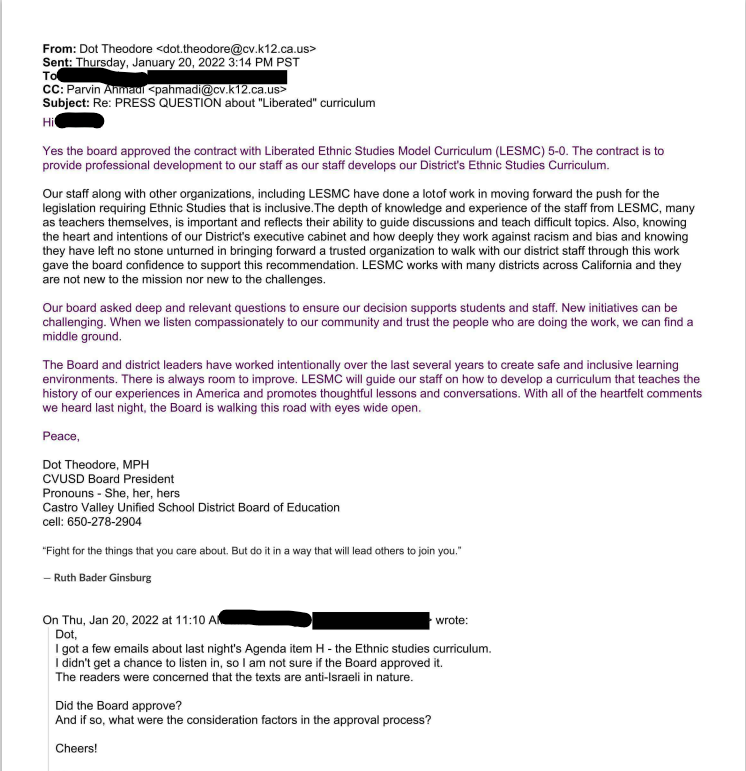
In a back and forth regarding a request for clarification on the scope of Castro Valley’s ethnic studies curriculum, Superintendent Parvin Ahmadi replied:
These disciplines contend with racism, white supremacy, and nation within nation relationships. By centering the stories, experiences, and perspectives of the aforementioned groups, intertribal, and mixed race [sic] people, Ethnic Studies uses community-based epistemology, content, and pedagogy to educate students to be socially, politically, environmentally and economically conscious of their personal connections to local and (trans)national histories and herstories.
The Superintendent also shared a graphic differentiating between “Multicultural Education” and “Ethnic Studies.” Words that were associated with the ethnic studies column included “Centers Racialized Communities,” “Race and Intersectional Counter Narratives,” “Decolonial and Liberatory” concepts, and “Anti Racist.”
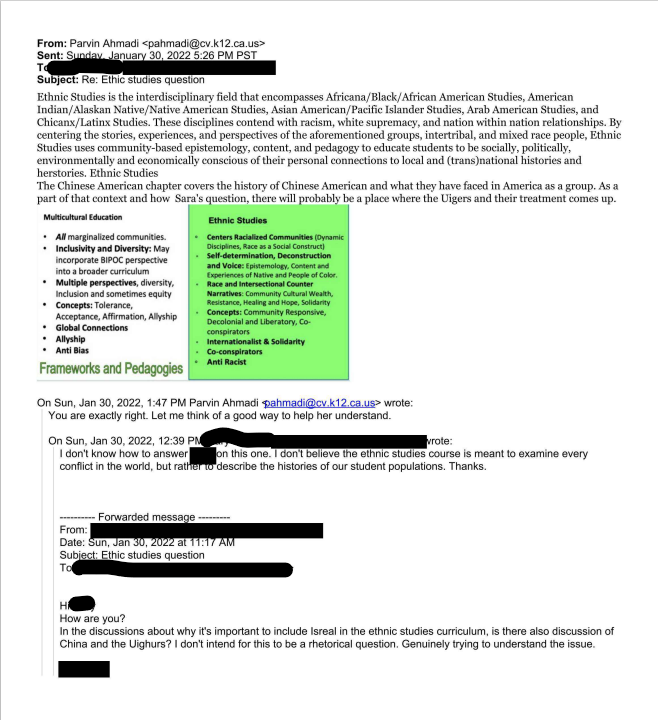
References
District board meeting video [Time stamp 50:50]
Stay Informed
